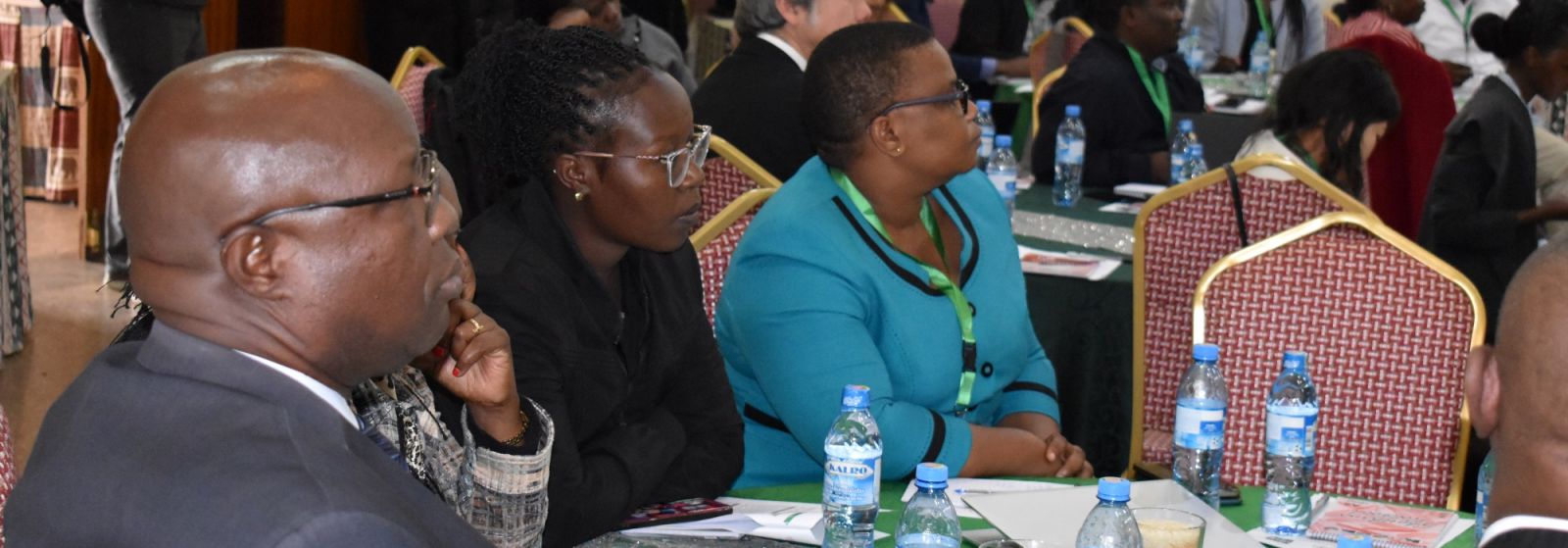16 NOVEMBER 2023 (NAIROBI, Kenya) – The International Rice Research Institute (IRRI) in collaboration with the Ministry of Agriculture and Livestock Development, and the Kenya Agricultural and Livestock Research Organization (KALRO) hosted its First National Rice Stakeholders’ Conference on 16th and 17th of November 2023 in Nairobi. The conference is aligned with the vision and mission of IRRI in Africa. It also addresses the objectives of several ongoing projects that IRRI is leading in Kenya such as the Accelerated Genetic Gain in Rice (AGGRi) Alliance, CGIAR's Seed Equal initiative, CGIAR's Market Intelligence and Scale Direct.
Rice is a staple food for millions of Kenyans but the country relies heavily on imports to meet the growing demand. To address this challenge, the Government of Kenya developed a National Rice Development Strategy (NRDS II) that aims to increase local rice production seven times by 2030 from 128,000 metric tons (MT) in 2019 to 846,000 MT by 2030. This is expected to reduce dependence on imports by 30 percent in 2027. However, the current situation of the rice sector in Kenya is far from the desired targets.
Over the past years, IRRI, in collaboration with KALRO and other scaling partners, has established and demonstrated sets of innovations and best practices in rice research and varietal improvement. This includes new high-yielding, climate-smart, market-demanded varieties and accompanying good production practices. These varieties include IR-05N221 (“Komboka”), 08FAN10 (“Mkombozi”), and CSR36.
To ensure that farmers have access to these varieties, KALRO and IRRI revolutionized the seed production program resulting in increased quantities of certified seeds. The scaling was made possible through the collaboration with the Kenya Plant Health Inspectorate Service (KEPHIS) - the national seed quality regulatory authority, the National Irrigation Authority (NIA), Mwea Rice Growers Multipurpose Co-operative Society Ltd. (MRGM) and other seed scaling partners.
KALRO, IRRI, and several local partners have been involved in enhancing farmers’ awareness of the new varieties through field demonstrations, farmers’ training and field days, collaboration with county governments in rural locations, and capacity development activities of farmer groups to access seeds directly and distribute them to individual farmers. However, seed availability is not the only challenge facing the rice sub-sector in Kenya.
Dr. Abdelbagi Ismail, IRRI - Africa’s Regional Director, advocated for the adoption of new technologies and varieties of rice as this would be crucial to realizing the government’s goal and the importance of working together as a team.
The conference highlighted several key areas where improvements are needed to transform the rice value chain in Kenya. This includes the need to optimize water management, leverage Public-Private Partnerships (PPP), adoption of climate-smart technologies and Information and Communication Technology (ICT) tools and digital platforms like IRRI’s SeedCast to improve seed systems; and bolster the role of cooperatives, the private sector, hybrid rice technology, and mechanization to enhance rice farming and boost production.
The discussions further yielded several practical recommendations for contributing to sustainable and resilient water management practices and enhancing production in the rice sector. These include the current potential of Western Kenya region (Nyanza and Western) in rice production, the contribution of rice to Kenya’s food security, gaps in Western Kenya rice irrigation schemes need to be reduced by deliberate customization of success stories from the rice value chain in Central Kenya, establishing a self-sustained rice seed system for the region and fostering an end-to-end approach for quality seed production and handling.
Mr. Henry Kinyua, Crops and Value Chains Advisor in the Executive Office of the President of the Republic of Kenya explained the strategy the government put in place to ensure reduced imports and increased exports. For reduced imports, the crops targeted are rice, cotton, wheat, oil seeds, and sugarcane; while for increased exports, the government is targeting tea, coffee, and fruits. “The above will be achieved through adopting new technologies, expanding areas currently under production, production of farm input such as subsidized fertilizers and mechanization,” stated Mr. Kinyua. He further noted that the government is reaching out to farmers through cooperatives and registration in digital applications for better accessibility of farm inputs provided.
Dr. Ajay Panchbhai, IRRI's Regional Breeding, Seed System, and Product Management Lead for Africa, moderated a panel discussion with experts from across the value chain on the key gaps in the rice sub-sector and potential solutions. Additionally, Dr. Ajay emphasized the need to adopt new technologies including high-yielding climate-smart varieties, efficient seed systems, good agronomic practices, concerted efforts from all the key value chain stakeholders, and policy support to boost the rice sector in Kenya.
The conference was attended by 90 participants, including representatives from the Kenyan government, national research organizations, nongovernment organizations (NGOs) - notably Syngenta Foundation for Sustainable Agriculture, private sector companies from Africa and Asia, and farmers' cooperatives including MRGM.


